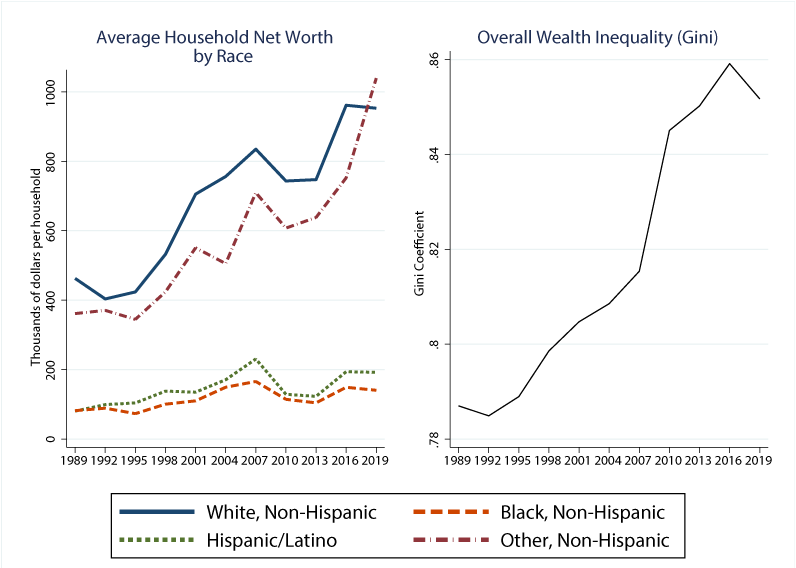Instead of getting lost down the road of convenient catchphrases, political point-scoring and territorial battles over moral high ground, let’s make sure we know what we’re arguing about. So, let’s start with a definition.
Affirmative action is a group of highly imperfect policies which are meant to reverse the historic underrepresentation of groups. Another way to put this is that they favor those who are believed to suffer from discrimination.
I am not going to make any judgments here about the effectiveness or correctness of these types of policies. Such conversations have to be undertaken with a thoughtfulness that is absent from the affirmative action political war. Instead, I want to talk about the nature of a market economy and why these policies exist.
In 1870, nearly all of the slaves in America were freed. But they were incredibly poor. For each $100 held by white Americans, black Americans had just $4.
Two hundred fifty years later, in 2019, black households made about half as much income as white households. There is no question that this number is much improved from the 19th century. In fact, black household incomes have increased faster than white household incomes as this catching-up process has occurred.
So, why not let the market solve this? Why implement affirmative action?
The answer is capital. In our economy, money makes money. The wealthy get wealthier, no matter your opinion about it. And I’ll let you guess who has the capital.
The average black household has less than 20% of the total wealth of the average white household. In dollar terms, the average Black American has about $60,126 in net worth, while the average white American has about $338,093. White households inherit over five times as much wealth as black households, on average, and are almost three times likelier to inherit any wealth at all. All of the data shows a massive and increasing gap in owned wealth.
“Given that there are so few black households at the top of the wealth distribution, faster growth in wealth at the top will lead to further increases in racial wealth inequality,” Ellora Derenoncourt and co-authors write in a paper for the Federal Reserve Bank of Minneapolis.
Predictably, the wealth gap stopped closing about 50 years ago and is now increasing.
Whether racial discrimination exists today has no bearing on these facts. When a group is released into our economy with disproportionately low wealth, market powers will not allow them to catch up.
Equal opportunity means that everyone is provided an equal chance to compete. Affirmative action is the recognition of the fact that the free market does not provide equal opportunity along racial lines. It represents an attempt to close the gap in opportunity between races.
Whether or not you agree with the policy or even the concept, remember why it exists.
Garrett Kent is a senior political science and economics major from Charlottesville, Virginia. Garrett has been a member since the spring 2022 semester.















